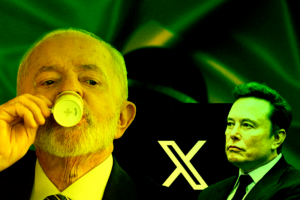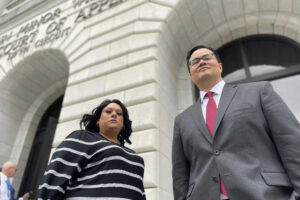Facebook Deletes Accounts at Request of U.S., Israel, Intercept Reports
The report comes amid a controversy about internet giants implementing policies that potentially target journalists and limit the reach of independent websites. Facebook CEO Mark Zuckerberg. (Eric Risberg / AP)
Facebook CEO Mark Zuckerberg. (Eric Risberg / AP)
Facebook is deleting accounts at the direction of the U.S. and Israeli governments, reports Glenn Greenwald of The Intercept. Greenwald noted last year that representatives of the social media giant had met with the Israeli government to determine which Palestinian accounts ought to be deleted on the basis of “incitement.”
Evidence has long suggested Facebook’s favoring of Israeli officials over Palestinian activists and journalists. The New York Times reported in December 2016 that “Israeli security agencies monitor Facebook and send the company posts they consider incitement. Facebook has responded by removing most of them.”
This is significant given that an estimated 96 percent of Palestinians use Facebook mainly for following news. The Independent reports that in October 2016, “the activist collective Palestinian Information Centre reported that at least 10 of their administrators’ accounts for their Arabic and English Facebook pages—followed by more than two million people—have been suspended, seven of them permanently, which they say is a result of new measures put in place in the wake of Facebook’s meeting with Israel.”
“Israel doesn’t want the Palestinian story about violations against them in the occupied territories to reach a worldwide audience,” Musa Rimawi, director of the Palestinian Centre for Development and Media Freedoms (MADA), told The Intercept. A 2016 report from MADA outlined the details of the censorship:
Pages and personal accounts that were filtered and blocked: Palestinian Dialogue Network (PALDF.net) Gaza now, Jerusalem News Network, Shihab agency, Radio Bethlehem 2000, Orient Radio Network, page Mesh Heck, Ramallah news, journalist Huzaifa Jamous from Abu Dis, activist Qassam Bedier, activist Mohammed Ghannam, journalist Kamel Jbeil, administrative accounts for Al Quds Page, administrative accounts Shihab agency, activist Abdel-Qader al-Titi, youth activist Hussein Shajaeih, Ramah Mubarak (account is activated), Ahmed Abdel Aal (account is activated), Mohammad Za’anin (still deleted), Amer Abu Arafa (still deleted), Abdulrahman al-Kahlout (still deleted).
Greenwald writes that there is a significant disparity between Facebook’s censoring of Israeli versus Palestinian accounts:
Needless to say, Israelis have virtually free rein to post whatever they want about Palestinians. Calls by Israelis for the killing of Palestinians are commonplace on Facebook, and largely remain undisturbed. …
Though some of the most inflammatory and explicit calls for murder are sometimes removed, Facebook continues to allow the most extremist calls for incitement against Palestinians to flourish. Indeed, Israel’s leader, Benjamin Netanyahu, has often used social media to post what is clearly incitement to violence against Palestinians generally. In contrast to Facebook’s active suppression against Palestinians, the very idea that Facebook would ever use its censorship power against Netanyahu or other prominent Israelis calling for violence and inciting attacks is unthinkable. Indeed, as Al Jazeera concisely put it, “Facebook hasn’t met Palestinian leaders to discuss their concern.”
Earlier this week, Facebook deleted the account of Ramzan Kadyrov, the authoritarian leader of the Chechen Republic. However, Kadyrov’s seemingly endless list of human rights violations were not among the reasons the account was deleted. The New York Times reports that “Mr. Kadyrov’s accounts were deactivated because he had just been added to a United States sanctions list and that the company was legally obligated to act.”
Greenwald continues:
What this means is obvious: that the U.S. government—meaning, at the moment, the Trump administration—has the unilateral and unchecked power to force the removal of anyone it wants from Facebook and Instagram by simply including them on a sanctions list. …
As is always true of censorship, there is one, and only one, principle driving all of this: power. Facebook will submit to and obey the censorship demands of governments and officials who actually wield power over it, while ignoring those who do not. That’s why declared enemies of the U.S. and Israeli governments are vulnerable to censorship measures by Facebook, whereas U.S. and Israeli officials (and their most tyrannical and repressive allies) are not.
Jennifer Stisa Granick, an ACLU attorney, told The New York Times: “It’s not a law that appears to be written or designed to deal with the special situations where it’s lawful or appropriate to repress speech. … This sanctions law is being used to suppress speech with little consideration of the free expression values and the special risks of blocking speech, as opposed to blocking commerce or funds as the sanctions was designed to do. That’s really problematic.”
Greenwald’s report comes amid an ongoing conversation about massive media companies implementing policies that potentially target journalists and limit the reach of independent websites.
After Google’s mysterious, ill-defined algorithm found “violations” that banned Truthdig from AdSense (which targets ad placements and is a significant source of revenue for blogs and independent sites) for nearly a year, Truthdig Publisher Zuade Kaufman wrote in an open letter on censorship:
Your support is crucial...The danger for all of us is Google dictating what is and isn’t permissible and feeling it’s free to explain its reasons or not because it is the sole arbiter. This affects not only the media but also readers who comment online. Do we really want anyone—companies, governments, neighbors, religious institutions—to have that sort of power? The restrictions on freedom of expression could be enormous.
As we navigate an uncertain 2025, with a new administration questioning press freedoms, the risks are clear: our ability to report freely is under threat.
Your tax-deductible donation enables us to dig deeper, delivering fearless investigative reporting and analysis that exposes the reality beneath the headlines — without compromise.
Now is the time to take action. Stand with our courageous journalists. Donate today to protect a free press, uphold democracy and uncover the stories that need to be told.






You need to be a supporter to comment.
There are currently no responses to this article.
Be the first to respond.